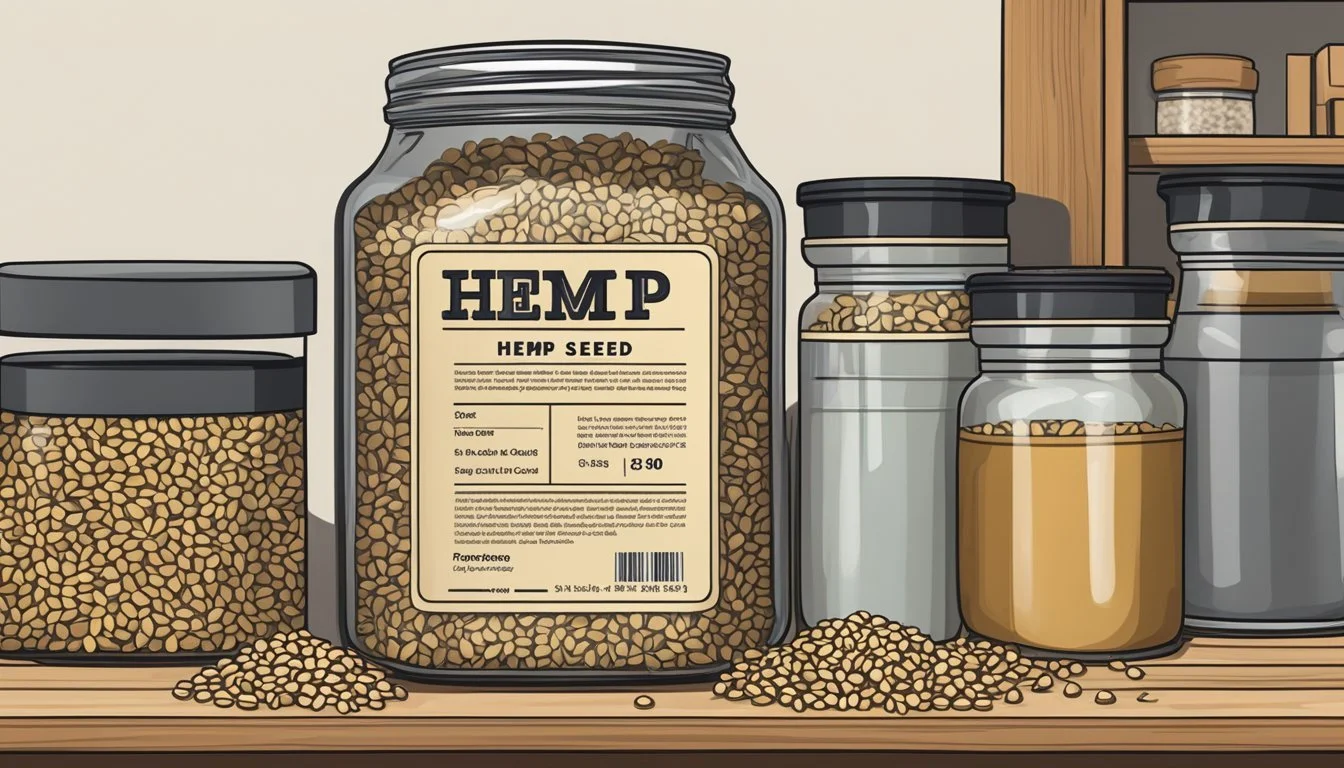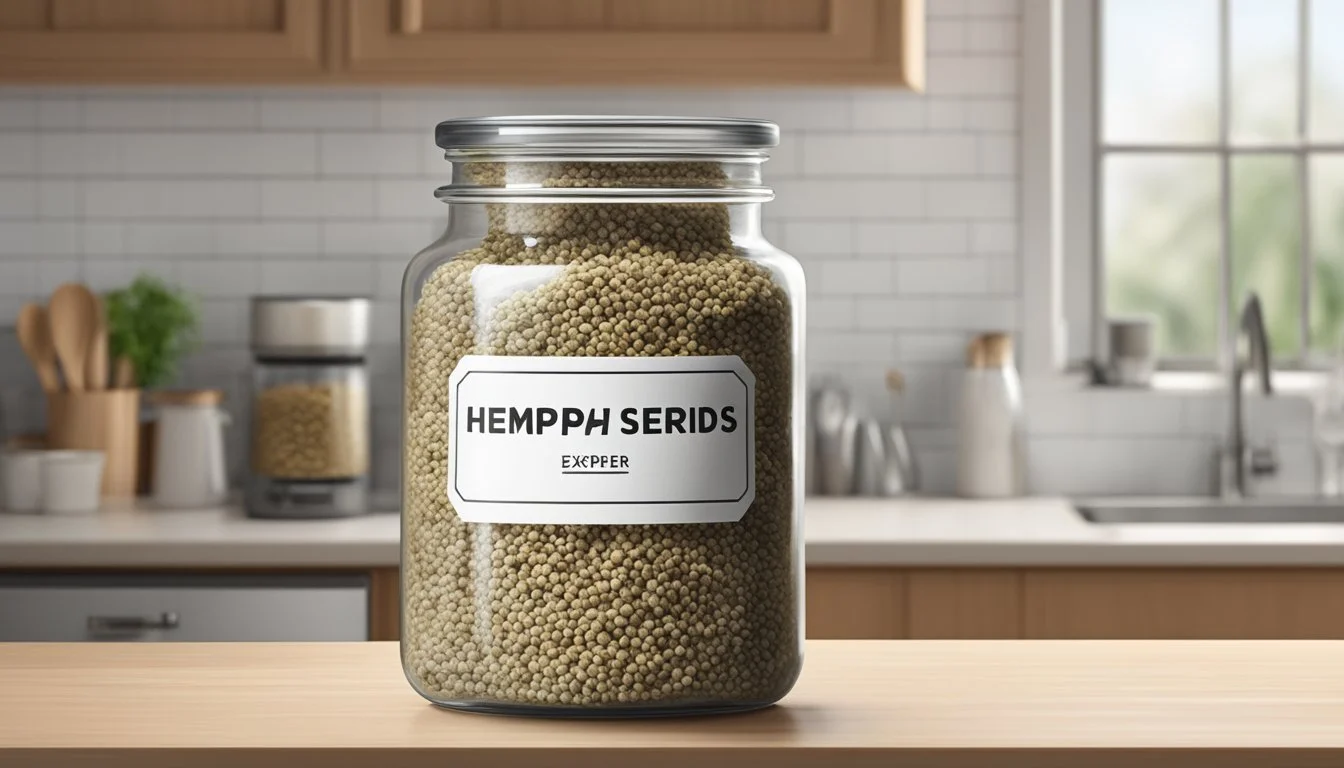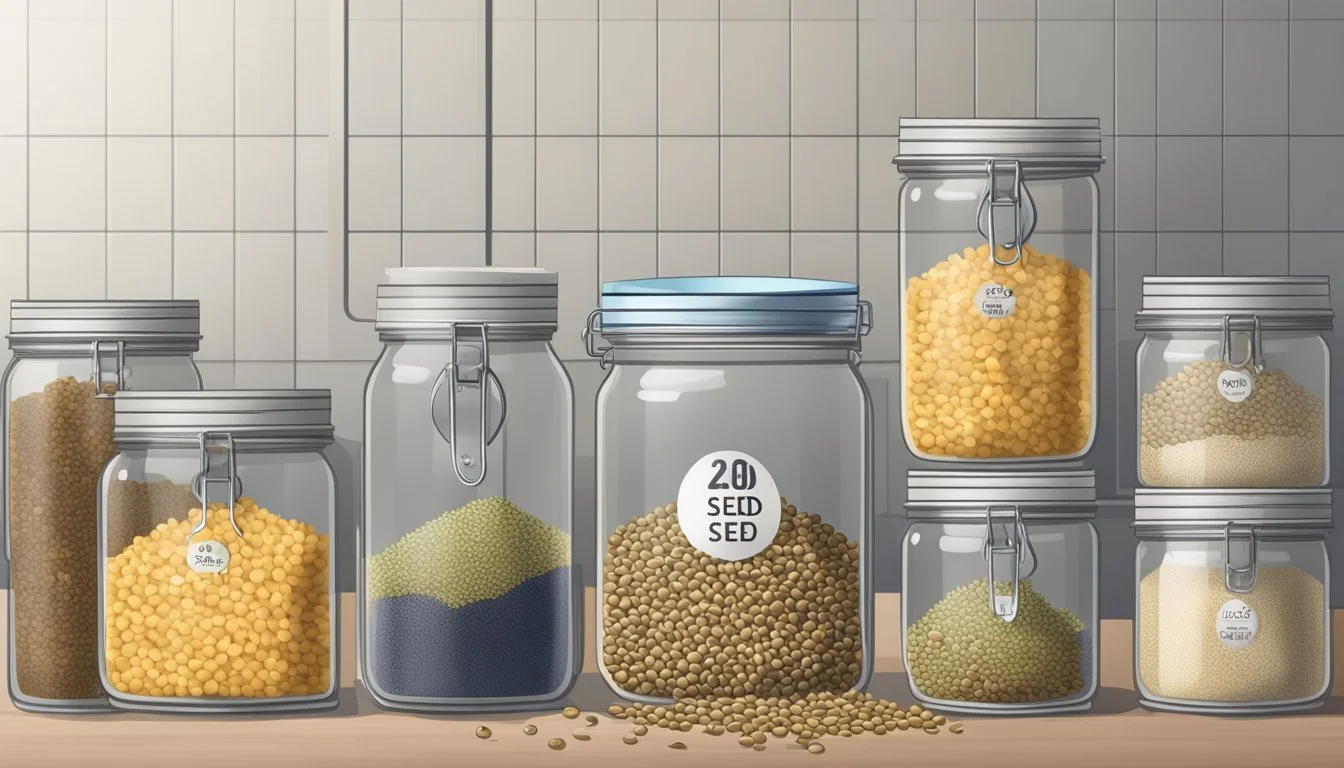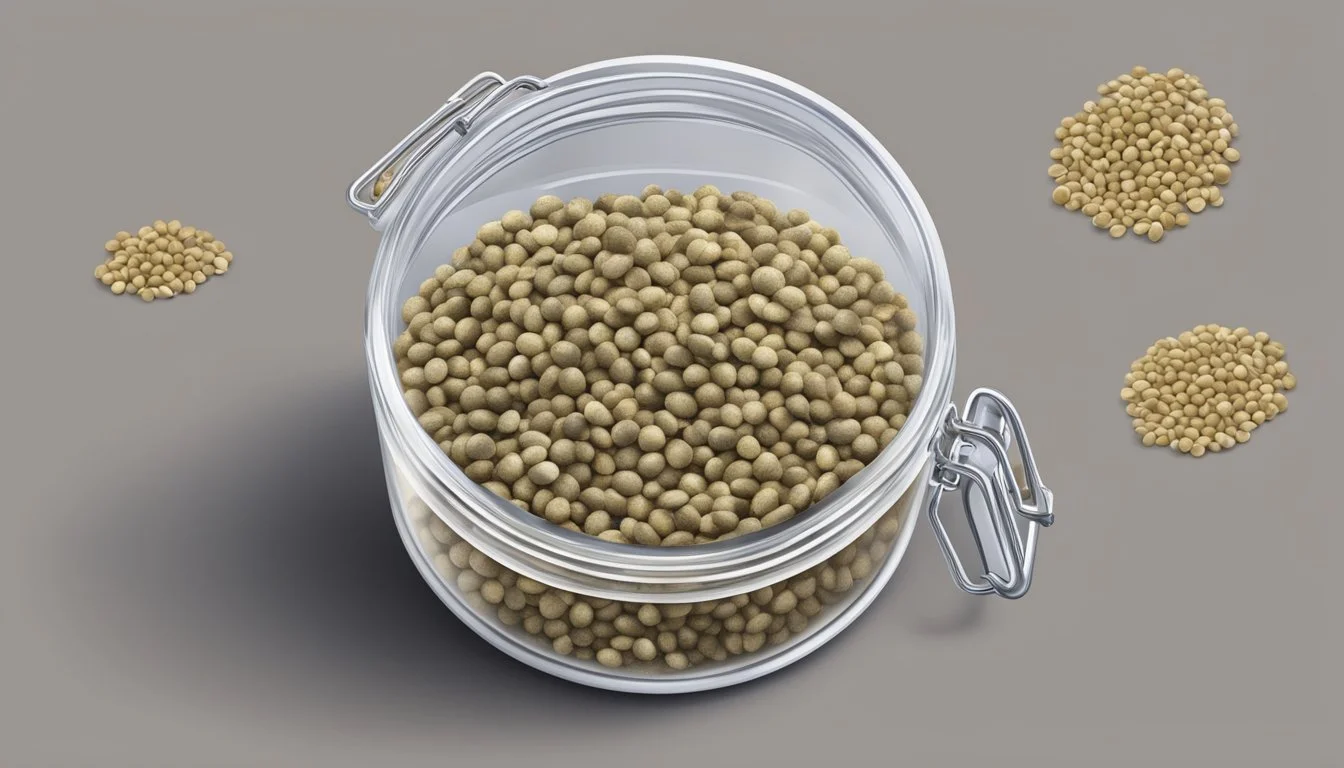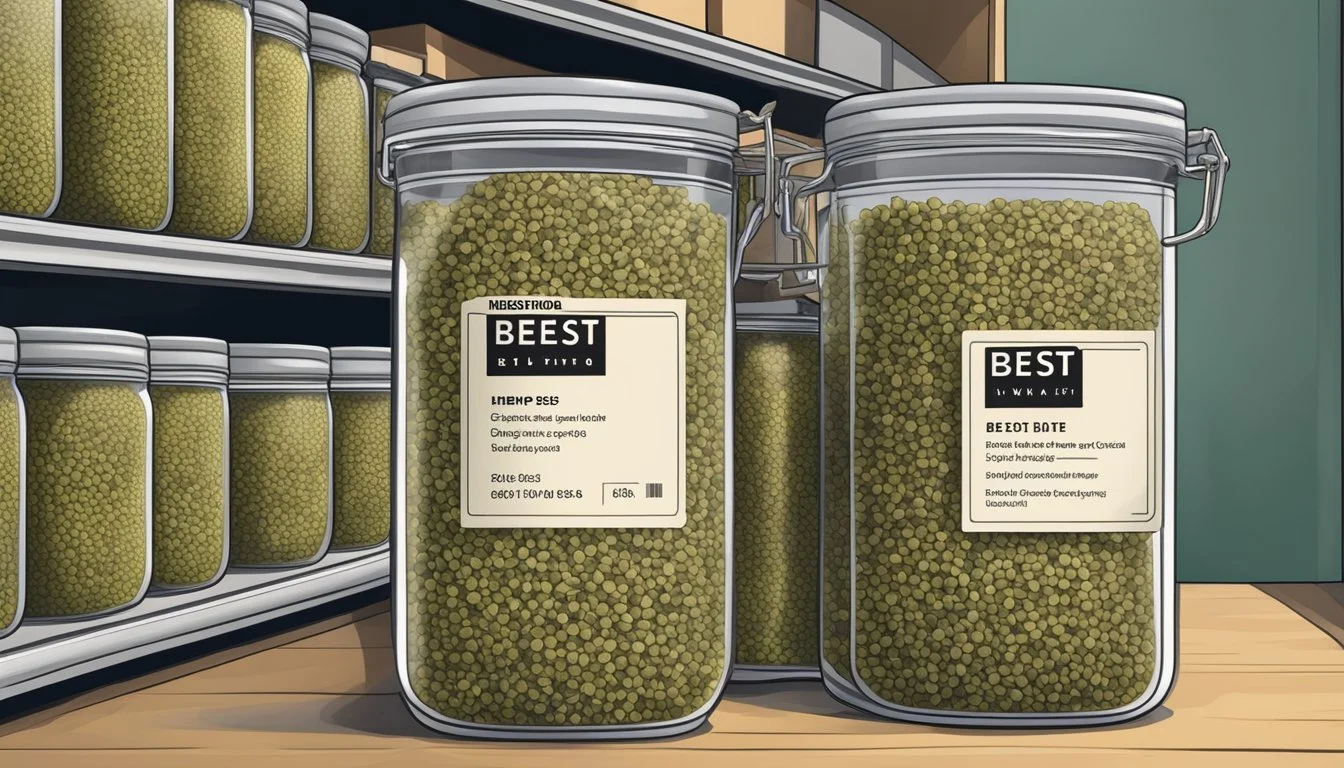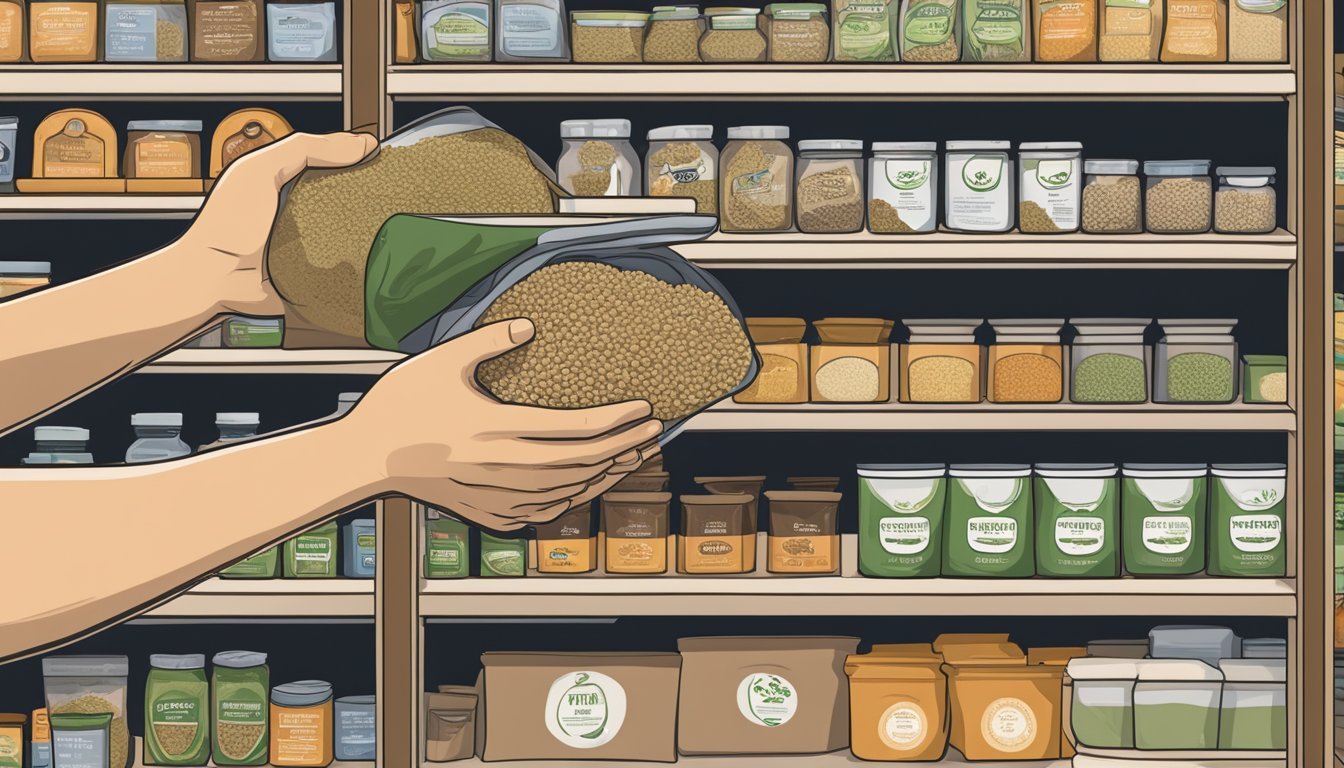How Long Do Hemp Seeds Last?
Understanding Their Shelf Life and Storage Tips
Hemp seeds (how long do hemp seeds last?), known for their nutritious benefits, have established a reputation as a superfood. They are a good source of plant-based protein, offering a complete amino acid profile essential for building muscle and repairing tissues. In addition to protein, hemp seeds are rich in omega-3 and omega-6 fatty acids, which are critical for heart health and cellular function. The seeds also contain important minerals like magnesium, zinc, and manganese, which play vital roles in various bodily processes.
When it comes to shelf-life, hemp seeds are remarkably durable. If stored properly, they can maintain their quality and nutritional value for a considerable period. The key to preserving hemp seeds lies in how they are stored; a cool, dark environment is ideal for preventing rancidity and preserving their delicate oils. Factors such as exposure to light, moisture, and air can accelerate spoilage, so keeping hemp seeds in an airtight container is crucial to extend their usability.
The freshness of hemp seeds directly impacts their quality, making storage decisions important to consumers and manufacturers alike. Despite their resilient nature, hemp seeds do not last indefinitely. Consumers should aim to use hemp seeds within a few months to a year of purchase to ensure they receive maximum nutritional benefits. Retailers and producers must also ensure that packaging protects the seeds from environmental factors that can compromise their longevity and nutritional profile.
Understanding Hemp Seeds
Hemp seeds, a product of the Cannabis sativa plant, are highly valued for their nutritional profile, which includes a rich balance of protein, fiber, and healthy fats. As they gain prominence in the food industry for their nutritional benefits, a delineation between hemp and marijuana is essential for consumer knowledge.
Definition and Nutrition
Hemp seeds serve as the seeds of the Cannabis sativa plant and should not be conflated with psychoactive drugs due to their non-intoxicating nature. Nutritionally rich, they provide a high-quality protein source, containing all nine essential amino acids. They are also an excellent source of fiber and essential fatty acids, including omega-3 and omega-6 in a ratio beneficial for human health. Moreover, hemp seeds are packed with important minerals like iron, magnesium, phosphorus, potassium, and zinc, along with antioxidants and a spectrum of vitamins.
Hemp Seeds in the Food Industry
The food industry has recognized the potential of hemp seeds as a superfood. Offering a nutty flavor, they can be consumed raw, roasted, or as an ingredient in various food products such as oils, milk, protein powder, and protein bars. Their ability to act as a complete protein, similar to quinoa or meat, makes them an excellent ingredient, particularly in vegan and vegetarian diets.
Hemp Versus Marijuana
Though both derived from the species Cannabis sativa, hemp and marijuana are distinct in their composition and uses. Hemp contains 0.3% or less THC (tetrahydrocannabinol), the psychoactive component found in higher concentrations in marijuana. This key difference is what legally separates hemp from marijuana, with hemp being cultivated primarily for industrial and nutritional applications, while marijuana is associated with recreational and medicinal use.
Shelf Life Factors
The longevity of hemp seeds is predominantly influenced by storage conditions, which can either preserve their quality or hasten deterioration.
Impact of Temperature and Humidity
Variations in temperature and humidity are critical in determining the shelf life of hemp seeds. They should be stored in a cool and dry place to prevent spoilage. High temperatures can increase the risk of rancidity due to accelerated oxidation, while excessive humidity can lead to mold growth and rot.
Light Exposure and Hemp Seed Quality
The quality of hemp seeds can degrade with prolonged exposure to light. Light triggers the oxidation process, which can spoil the seeds and diminish their nutritional value. Storing hemp seeds in dark, opaque containers can mitigate light exposure and help maintain their freshness.
Oxygen, Moisture, and Rancidity
Oxygen and moisture are enemies to the shelf life of hemp seeds. Proper packaging that limits exposure to air and moisture is essential in preventing the seeds from turning rancid. Airtight containers can help maintain the seeds' integrity by reducing the oxidation process and moisture accumulation.
Optimal Storage Methods
Proper storage is fundamental to maintaining the integrity of hemp seeds. They thrive in conditions that are cool, dark, and dry. Here are specific ways to achieve these conditions at home.
Storing Hemp Seeds at Home
Hemp seeds last longer when stored in a pantry, away from any direct light sources. The ideal storage location is cool, dark, and doesn’t fluctuate with temperature or humidity. Experts recommend a temperature range between 50-70°F (10-21°C) with a humidity level below 50%.
Refrigeration and Freezing
For extended preservation, placing hemp seeds in the refrigerator helps maintain freshness due to the consistently cool temperature. Freezing is especially effective for long-term storage, exceeding three months. In cold storage, the seeds' shelf life can be significantly increased, which is particularly useful for maintaining their nutritional profile and avoiding spoilage.
Packaging and Containers
Hemp seeds should be stored in airtight containers to keep out moisture and other contaminants. For added protection against light and oxygen — which can degrade the seeds' quality — one might use opaque containers or store them inside a cupboard. Vacuum-sealing bags before freezing hemp seeds can further extend their longevity.
Signs of Spoilage
When assessing whether hemp seeds have spoiled, one should pay attention to olfactory and gustatory changes, as well as any visible alterations to the seeds' appearance.
Smell and Taste Indicators
Spoiled hemp seeds typically emit a rancid smell due to the oxidation of their healthy fats. This off-putting odor is a clear sign that the seeds should not be consumed. Additionally, any bitter or sour taste is indicative of spoilage and means the hemp seeds are no longer suitable for eating.
Visual Inspection for Mold and Dampness
During a visual inspection, one should look for the presence of mold which can appear as a fuzzy or discolored growth on the surface of the seeds. Dampness can encourage mold growth and accelerate the spoiling process. If mold is detected or the seeds appear damp, they should be considered spoiled.
Usage and Benefits
Hemp seeds, regarded for their long shelf life and rich nutrient profile, provide extensive culinary applications and health benefits. These seeds are a versatile food source and an excellent provider of essential nutrients.
Culinary Uses of Hemp Seeds
Hemp seeds, often referred to as hemp hearts when shelled, are increasingly used in a variety of culinary preparations. They can be easily incorporated into food items to enhance nutritional value and texture. Sprinkling hemp seeds into smoothies, yogurt, or salads adds a mild, nutty flavor and crunchy texture. They also blend seamlessly into baked goods and are suitable for vegan and gluten-free recipes.
Health Benefits and Nutritional Significance
Hemp seeds are a powerhouse of nutritional benefits. With a significant amount of plant-based protein, they are an excellent source for vegetarians and vegans. The seeds are also rich in essential nutrients, including:
Iron
Vitamin E
Manganese
Magnesium
B-vitamins
Zinc
Additionally, the high levels of omega-3 and omega-6 fatty acids in hemp seeds play a crucial role in cardiovascular health, potentially reducing the risk of heart disease. The presence of these omega fatty acids, along with antioxidants, helps combat free radicals, which are implicated in cancer and other diseases. Hemp seeds do not contain psychoactive compounds and are safe for regular consumption.
Industrial Hemp Uses
Industrial hemp serves as a multipurpose crop, instrumental in various industries due to its dual outputs of fibers and seeds. The plant's cultivation yields raw materials for a range of products, presenting two primary areas of usage.
Textile and Material Production
Industrial hemp is utilized extensively in producing textiles. Its strong fibers are processed to create a variety of cloth-based items, ranging from clothing and accessories to industrial-grade textiles. Hemp fibers boast qualities including durability and mildew resistance, making them ideal for fabric manufacturing. Additionally, hemp is instrumental in the construction sector, contributing to the creation of biodegradable plastics, building materials, and even as a component in producing concrete known as 'hempcrete'.
Hemp Oil and Cannabidiol (CBD) Extraction
Hemp seeds are a valuable source for hemp seed oil, which is highly regarded for its nutritional benefits including essential fatty acids. The oil extracted from hemp seeds is used in the food industry and skincare products. Beyond the seeds, the harvesting process also involves the collection of flowers from which cannabidiol (CBD) is derived. CBD is touted for its therapeutic properties and is extracted for use in a variety of health and wellness products. This cannabinoid is obtained through a process that ensures the isolation and concentration of CBD oil from the harvested hemp plants.
Frequently Asked Questions
When discussing hemp seeds, two questions commonly arise concerning drug testing and the best practices for their storage to maximize shelf life.
Hemp Seeds and Drug Testing
Hemp seeds are a nutritious addition to one's diet, but they may raise concerns about drug testing. Typically, hemp seeds themselves contain negligible amounts of THC, the psychoactive compound found in marijuana. Therefore, they should not affect a drug test result if consumed in moderation. However, individuals should be aware that cross-contamination with THC is possible during processing, although quality hemp products are manufactured to avoid this.
Long-Term Storage and Shelf Life
The shelf life of hemp seeds can be extended significantly through proper storage techniques. For optimal longevity, hemp seeds should be stored in a sealed container and placed in a cool, dry location. Under these conditions, unopened hemp seeds can maintain their quality for up to five years. Once opened, to best preserve their freshness, storing them in the refrigerator or freezer is recommended, which can extend their shelf life to around one year.
Ideal storage conditions for maximum shelf life:
In a sealed container
In a cool, dry place
Away from direct sunlight
Shelf Life:
Sealed, unopened: Up to five years
Opened: Up to one year into the refrigerator or freezer
Users should discard hemp seeds if they notice any signs of rancidity or an off smell, as this indicates spoilage.
Purchasing and Proper Handling
When purchasing hemp seeds, the buyer's focus should be on securing freshness and quality to ensure maximum shelf life. Proper handling post-purchase significantly contributes to preserving the seeds' nutritional value and taste.
Selecting Quality Hemp Seeds
Buyers should look for hemp seeds that are uniform in color and size, indicating consistency and quality. Hulled hemp seeds, also known as hemp hearts, should have a creamy white to off-white color with no signs of discoloration or moisture. For those intending to use hemp seeds for making hemp milk or baking, starting with high-quality seeds is essential. Freshness can often be gauged by product turnover, so purchasing from stores with high volume sales can be beneficial. When buying in bulk, ensure that the seeds come from a reputable source and are stored in airtight containers.
Visual Inspection: Fresh, quality hemp seeds should be free of mold and debris.
Smell Check: There should be no rancid or off-putting odors.
Touch Test: They should feel dry to the touch without any stickiness.
Maintaining Freshness After Purchase
After purchasing, proper storage is key to maintaining the seeds' freshness. Hemp seeds should be stored in a cool, dry place away from direct sunlight. Refrigeration can further extend their longevity, especially if the seeds are bought in bulk. Sealed containers are essential to prevent oxidation, which can lead to rancidity. Hemp seeds can also be stored in the freezer to prolong their usability period.
Ideal Storage Conditions:
Temperature: Keep below room temperature (ideally refrigerated).
Environment: Dry area away from direct light.
Container: Airtight to prevent exposure to oxygen.
By purchasing high-quality hemp seeds and handling them correctly after the sale, consumers can enjoy fresh hemp seeds for hemp milk, baking, or as a nutritious flour substitute for up to two years.

